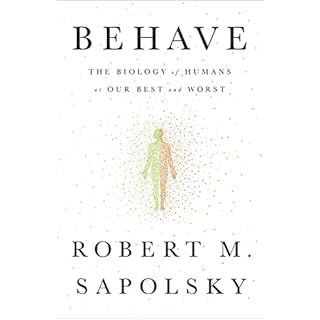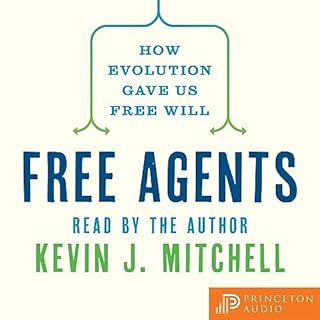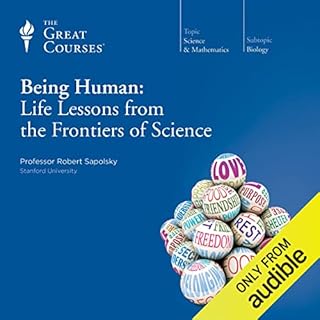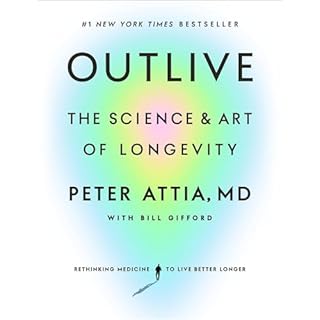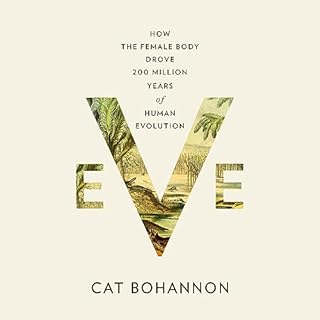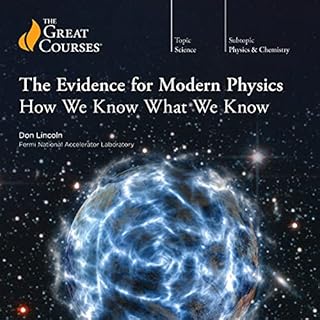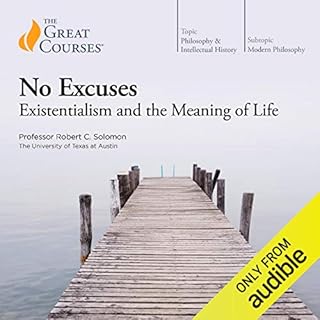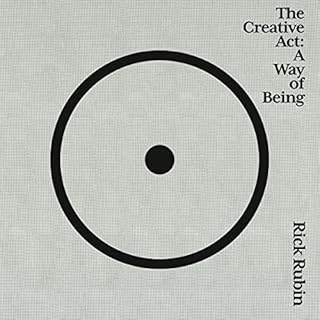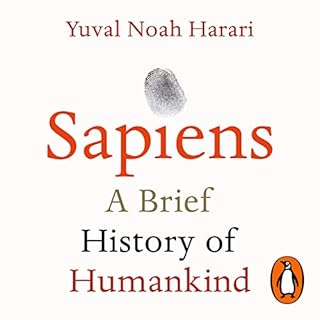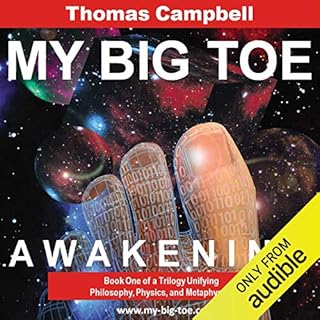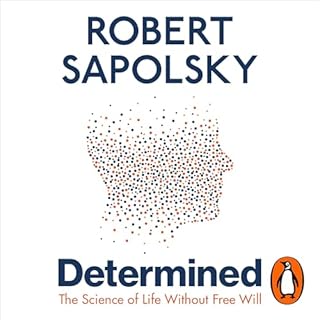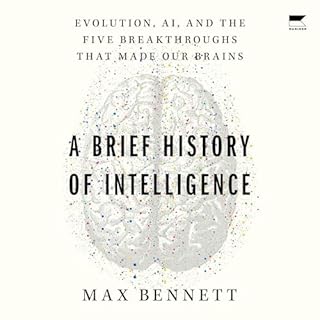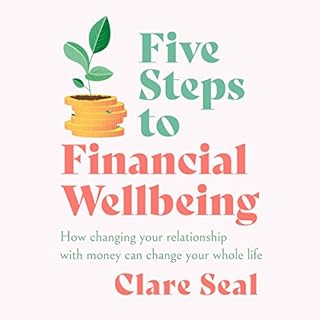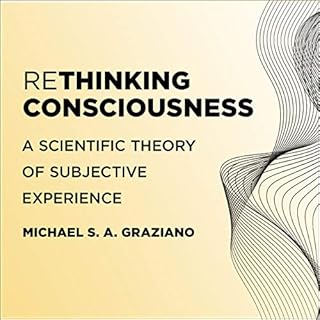
Determined
A Science of Life Without Free Will
Failed to add items
Add to Cart failed.
Add to Wish List failed.
Remove from wishlist failed.
Adding to library failed
Follow podcast failed
Unfollow podcast failed
$0.99/mo first 3 months
 Prime members: New to Audible?
Prime members: New to Audible?Get 2 free audiobooks during trial.
Buy for $22.50
No default payment method selected.
We are sorry. We are not allowed to sell this product with the selected payment method
-
Narrated by:
-
Kaleo Griffith
About this listen
The instant New York Times bestseller
“Excellent…Outstanding for its breadth of research, the liveliness of the writing, and the depth of humanity it conveys.”–Wall Street Journal
One of our great behavioral scientists, the bestselling author of Behave, plumbs the depths of the science and philosophy of decision-making to mount a devastating case against free will, an argument with profound consequences
Robert Sapolsky’s Behave, his now classic account of why humans do good and why they do bad, pointed toward an unsettling conclusion: We may not grasp the precise marriage of nature and nurture that creates the physics and chemistry at the base of human behavior, but that doesn’t mean it doesn’t exist. Now, in Determined, Sapolsky takes his argument all the way, mounting a brilliant (and in his inimitable way, delightful) full-frontal assault on the pleasant fantasy that there is some separate self telling our biology what to do.
Determined offers a marvelous synthesis of what we know about how consciousness works—the tight weave between reason and emotion and between stimulus and response in the moment and over a life. One by one, Sapolsky tackles all the major arguments for free will and takes them out, cutting a path through the thickets of chaos and complexity science and quantum physics, as well as touching ground on some of the wilder shores of philosophy. He shows us that the history of medicine is in no small part the history of learning that fewer and fewer things are somebody’s “fault”; for example, for centuries we thought seizures were a sign of demonic possession. Yet, as he acknowledges, it’s very hard, and at times impossible, to uncouple from our zeal to judge others and to judge ourselves. Sapolsky applies the new understanding of life beyond free will to some of our most essential questions around punishment, morality, and living well together. By the end, Sapolsky argues that while living our daily lives recognizing that we have no free will is going to be monumentally difficult, doing so is not going to result in anarchy, pointlessness, and existential malaise. Instead, it will make for a much more humane world.
*This audiobook includes a downloadable PDF containing Tables, Charts, Diagrams, and Footnotes from the book.
PLEASE NOTE: When you purchase this title, the accompanying PDF will be available in your Audible Library along with the audio.
©2023 Robert M. Sapolsky (P)2023 Penguin AudioListeners also enjoyed...
-
Behave
- The Biology of Humans at Our Best and Worst
- By: Robert Sapolsky
- Narrated by: Michael Goldstrom
- Length: 26 hrs and 27 mins
- Unabridged
-
Overall4.5 out of 5 stars 3,950
-
Performance4.5 out of 5 stars 3,328
-
Story4.5 out of 5 stars 3,296
From the celebrated neurobiologist and primatologist, a landmark, genre-defining examination of human behavior, both good and bad, and an answer to the question: Why do we do the things we do? Sapolsky's storytelling concept is delightful but it also has a powerful intrinsic logic: He starts by looking at the factors that bear on a person's reaction in the precise moment a behavior occurs, and then hops back in time from there, in stages, ultimately ending up at the deep history of our species and its evolutionary legacy.
-
5 out of 5 stars
-
Insightful
- By Doug Hay on 07-27-17
By: Robert Sapolsky
-
How to Know a Person
- The Art of Seeing Others Deeply and Being Deeply Seen
- By: David Brooks
- Narrated by: David Brooks
- Length: 7 hrs and 27 mins
- Unabridged
-
Overall4.5 out of 5 stars 2,178
-
Performance5 out of 5 stars 2,029
-
Story4.5 out of 5 stars 2,027
As David Brooks observes, “There is one skill that lies at the heart of any healthy person, family, school, community organization, or society: the ability to see someone else deeply and make them feel seen—to accurately know another person, to let them feel valued, heard, and understood.” And yet we humans don’t do this well. All around us are people who feel invisible, unseen, misunderstood. In How to Know a Person, Brooks sets out to help us do better, posing questions that are essential for all of us: If you want to know a person, what kind of attention should you cast on them?
-
5 out of 5 stars
-
A book he was ready to write
- By Adam Shields on 11-17-23
By: David Brooks
-
Free Agents
- How Evolution Gave Us Free Will
- By: Kevin J. Mitchell
- Narrated by: Kevin J. Mitchell
- Length: 10 hrs and 52 mins
- Unabridged
-
Overall4.5 out of 5 stars 55
-
Performance4.5 out of 5 stars 52
-
Story4.5 out of 5 stars 52
Scientists are learning more and more about how brain activity controls behavior and how neural circuits weigh alternatives and initiate actions. As we probe ever deeper into the mechanics of decision making, many conclude that agency—or free will—is an illusion. In Free Agents, leading neuroscientist Kevin Mitchell presents a wealth of evidence to the contrary, arguing that we are not mere machines responding to physical forces but agents acting with purpose.
-
5 out of 5 stars
-
Adding Clarity to Agency
- By Brad Caldwell on 10-10-23
-
Free Will
- By: Sam Harris
- Narrated by: Sam Harris
- Length: 1 hr and 14 mins
- Unabridged
-
Overall4.5 out of 5 stars 5,264
-
Performance4.5 out of 5 stars 4,544
-
Story4.5 out of 5 stars 4,459
A belief in free will touches nearly everything that human beings value. It is difficult to think about law, politics, religion, public policy, intimate relationships, morality—as well as feelings of remorse or personal achievement—without first imagining that every person is the true source of his or her thoughts and actions. And yet the facts tell us that free will is an illusion.
-
5 out of 5 stars
-
Wrong Question
- By Jennifer on 11-15-14
By: Sam Harris
-
Being Human: Life Lessons from the Frontiers of Science
- By: Robert Sapolsky, The Great Courses
- Narrated by: The Great Courses
- Length: 5 hrs and 53 mins
- Original Recording
-
Overall4.5 out of 5 stars 1,624
-
Performance4.5 out of 5 stars 1,426
-
Story4.5 out of 5 stars 1,417
Understanding our humanity - the essence of who we are - is one of the deepest mysteries and biggest challenges in modern science. Why do we have bad moods? Why are we capable of having such strange dreams? How can metaphors in our language hold such sway on our actions? As we learn more about the mechanisms of human behavior through evolutionary biology, neuroscience, anthropology, and other related fields, we're discovering just how intriguing the human species is.
-
3 out of 5 stars
-
Somewhat Interesting but not Quite as Advertised
- By Adam J Duhame on 10-05-13
By: Robert Sapolsky, and others
-
Outlive
- The Science and Art of Longevity
- By: Peter Attia MD, Bill Gifford - contributor
- Narrated by: Peter Attia MD
- Length: 17 hrs and 7 mins
- Unabridged
-
Overall5 out of 5 stars 6,824
-
Performance5 out of 5 stars 5,992
-
Story5 out of 5 stars 5,981
Wouldn’t you like to live longer? And better? In this operating manual for longevity, Dr. Peter Attia draws on the latest science to deliver innovative nutritional interventions, techniques for optimizing exercise and sleep, and tools for addressing emotional and mental health.
-
2 out of 5 stars
-
Too Much Filler
- By J. Badaracco on 04-09-23
By: Peter Attia MD, and others
-
Behave
- The Biology of Humans at Our Best and Worst
- By: Robert Sapolsky
- Narrated by: Michael Goldstrom
- Length: 26 hrs and 27 mins
- Unabridged
-
Overall4.5 out of 5 stars 3,950
-
Performance4.5 out of 5 stars 3,328
-
Story4.5 out of 5 stars 3,296
From the celebrated neurobiologist and primatologist, a landmark, genre-defining examination of human behavior, both good and bad, and an answer to the question: Why do we do the things we do? Sapolsky's storytelling concept is delightful but it also has a powerful intrinsic logic: He starts by looking at the factors that bear on a person's reaction in the precise moment a behavior occurs, and then hops back in time from there, in stages, ultimately ending up at the deep history of our species and its evolutionary legacy.
-
5 out of 5 stars
-
Insightful
- By Doug Hay on 07-27-17
By: Robert Sapolsky
-
How to Know a Person
- The Art of Seeing Others Deeply and Being Deeply Seen
- By: David Brooks
- Narrated by: David Brooks
- Length: 7 hrs and 27 mins
- Unabridged
-
Overall4.5 out of 5 stars 2,178
-
Performance5 out of 5 stars 2,029
-
Story4.5 out of 5 stars 2,027
As David Brooks observes, “There is one skill that lies at the heart of any healthy person, family, school, community organization, or society: the ability to see someone else deeply and make them feel seen—to accurately know another person, to let them feel valued, heard, and understood.” And yet we humans don’t do this well. All around us are people who feel invisible, unseen, misunderstood. In How to Know a Person, Brooks sets out to help us do better, posing questions that are essential for all of us: If you want to know a person, what kind of attention should you cast on them?
-
5 out of 5 stars
-
A book he was ready to write
- By Adam Shields on 11-17-23
By: David Brooks
-
Free Agents
- How Evolution Gave Us Free Will
- By: Kevin J. Mitchell
- Narrated by: Kevin J. Mitchell
- Length: 10 hrs and 52 mins
- Unabridged
-
Overall4.5 out of 5 stars 55
-
Performance4.5 out of 5 stars 52
-
Story4.5 out of 5 stars 52
Scientists are learning more and more about how brain activity controls behavior and how neural circuits weigh alternatives and initiate actions. As we probe ever deeper into the mechanics of decision making, many conclude that agency—or free will—is an illusion. In Free Agents, leading neuroscientist Kevin Mitchell presents a wealth of evidence to the contrary, arguing that we are not mere machines responding to physical forces but agents acting with purpose.
-
5 out of 5 stars
-
Adding Clarity to Agency
- By Brad Caldwell on 10-10-23
-
Free Will
- By: Sam Harris
- Narrated by: Sam Harris
- Length: 1 hr and 14 mins
- Unabridged
-
Overall4.5 out of 5 stars 5,264
-
Performance4.5 out of 5 stars 4,544
-
Story4.5 out of 5 stars 4,459
A belief in free will touches nearly everything that human beings value. It is difficult to think about law, politics, religion, public policy, intimate relationships, morality—as well as feelings of remorse or personal achievement—without first imagining that every person is the true source of his or her thoughts and actions. And yet the facts tell us that free will is an illusion.
-
5 out of 5 stars
-
Wrong Question
- By Jennifer on 11-15-14
By: Sam Harris
-
Being Human: Life Lessons from the Frontiers of Science
- By: Robert Sapolsky, The Great Courses
- Narrated by: The Great Courses
- Length: 5 hrs and 53 mins
- Original Recording
-
Overall4.5 out of 5 stars 1,624
-
Performance4.5 out of 5 stars 1,426
-
Story4.5 out of 5 stars 1,417
Understanding our humanity - the essence of who we are - is one of the deepest mysteries and biggest challenges in modern science. Why do we have bad moods? Why are we capable of having such strange dreams? How can metaphors in our language hold such sway on our actions? As we learn more about the mechanisms of human behavior through evolutionary biology, neuroscience, anthropology, and other related fields, we're discovering just how intriguing the human species is.
-
3 out of 5 stars
-
Somewhat Interesting but not Quite as Advertised
- By Adam J Duhame on 10-05-13
By: Robert Sapolsky, and others
-
Outlive
- The Science and Art of Longevity
- By: Peter Attia MD, Bill Gifford - contributor
- Narrated by: Peter Attia MD
- Length: 17 hrs and 7 mins
- Unabridged
-
Overall5 out of 5 stars 6,824
-
Performance5 out of 5 stars 5,992
-
Story5 out of 5 stars 5,981
Wouldn’t you like to live longer? And better? In this operating manual for longevity, Dr. Peter Attia draws on the latest science to deliver innovative nutritional interventions, techniques for optimizing exercise and sleep, and tools for addressing emotional and mental health.
-
2 out of 5 stars
-
Too Much Filler
- By J. Badaracco on 04-09-23
By: Peter Attia MD, and others
-
Same as Ever
- A Guide to What Never Changes
- By: Morgan Housel
- Narrated by: Chris Hill
- Length: 5 hrs and 46 mins
- Unabridged
-
Overall4.5 out of 5 stars 1,203
-
Performance5 out of 5 stars 1,110
-
Story4.5 out of 5 stars 1,110
Every investment plan under the sun is, at best, an informed speculation of what may happen in the future, based on a systematic extrapolation from the known past. Same as Ever reverses the process, inviting us to identify the many things that never, ever change. With his usual elan, Morgan Housel presents a master class on optimizing risk, seizing opportunity, and living your best life. Through a sequence of engaging stories and pithy examples, he shows how we can use our newfound grasp of the unchanging to see around corners.
-
3 out of 5 stars
-
Beautifully Succinct Summary of Others Original Ideas
- By Mitch on 11-09-23
By: Morgan Housel
-
White Holes
- By: Carlo Rovelli
- Narrated by: Harry Lloyd
- Length: 2 hrs and 48 mins
- Unabridged
-
Overall4.5 out of 5 stars 100
-
Performance5 out of 5 stars 95
-
Story4.5 out of 5 stars 95
Let us journey, with beloved physicist Carlo Rovelli, into the heart of a black hole. We slip beyond its horizon and tumble down this crack in the universe. As we plunge, we see geometry fold. Time and space pull and stretch. And finally, at the black hole’s core, space and time dissolve, and a white hole is born. Rovelli has dedicated his career to uniting the time-warping ideas of general relativity and the perplexing uncertainties of quantum mechanics. In White Holes, he reveals the mind of a scientist at work.
-
5 out of 5 stars
-
Absolutely Beyond Brilliant!
- By H. S. on 11-01-23
By: Carlo Rovelli
-
Eve
- How the Female Body Drove 200 Million Years of Human Evolution
- By: Cat Bohannon
- Narrated by: Cat Bohannon
- Length: 15 hrs and 54 mins
- Unabridged
-
Overall4.5 out of 5 stars 530
-
Performance5 out of 5 stars 482
-
Story4.5 out of 5 stars 482
Why do women live longer than men? Why do women have menopause? Why are women more likely to get Alzheimer’s? Why do girls score better at every academic subject than boys until puberty, when suddenly their scores plummet? And does the female brain really exist? In Eve, Cat Bohannon answers questions scientists should have been addressing for decades. With boundless curiosity and sharp wit, she covers the past 200 million years to explain the specific science behind the development of the female sex.
-
4 out of 5 stars
-
Stronger on reproductive bio, flimsy on sexuality
- By hotlanta on 12-20-23
By: Cat Bohannon
-
The Evidence for Modern Physics
- How We Know What We Know
- By: Professor Don Lincoln, The Great Courses
- Narrated by: Professor Don Lincoln
- Length: 11 hrs and 54 mins
- Original Recording
-
Overall5 out of 5 stars 449
-
Performance5 out of 5 stars 380
-
Story5 out of 5 stars 376
In this 24-lesson course aimed at non-scientists, noted particle physicist Dr. Don Lincoln of Fermi National Accelerator Laboratory covers more than a century of progress in physics, describing exactly how scientists reach the conclusions they do. He starts with the atom, which was long hypothesized but wasn’t definitively proven until a paper by Albert Einstein in 1905. That was just the beginning, as researchers probed ever deeper into the atom’s complex structure, leading to the weird findings of quantum mechanics.
-
5 out of 5 stars
-
Strongly Recommend for Everyone
- By Liam A on 05-23-21
By: Professor Don Lincoln, and others
-
How Emotions Are Made
- The Secret Life of the Brain
- By: Lisa Feldman Barrett
- Narrated by: Cassandra Campbell
- Length: 14 hrs and 32 mins
- Unabridged
-
Overall4.5 out of 5 stars 2,494
-
Performance4.5 out of 5 stars 2,121
-
Story4.5 out of 5 stars 2,105
The science of emotion is in the midst of a revolution on par with the discovery of relativity in physics and natural selection in biology. Leading the charge is psychologist and neuroscientist Lisa Feldman Barrett, whose research overturns the long-standing belief that emotions are automatic, universal, and hardwired in different brain regions. Instead, Barrett shows, we construct each instance of emotion through a unique interplay of brain, body, and culture.
-
5 out of 5 stars
-
Emotions are not things!!!!!!
- By Gary on 03-14-17
-
Dopamine Nation
- Finding Balance in the Age of Indulgence
- By: Dr. Anna Lembke
- Narrated by: Dr. Anna Lembke
- Length: 6 hrs and 11 mins
- Unabridged
-
Overall4.5 out of 5 stars 7,255
-
Performance4.5 out of 5 stars 6,136
-
Story4.5 out of 5 stars 6,108
This book is about pleasure. It’s also about pain. Most important, it’s about how to find the delicate balance between the two, and why now more than ever finding balance is essential. We’re living in a time of unprecedented access to high-reward, high-dopamine stimuli: drugs, food, news, gambling, shopping, gaming, texting, sexting, Facebooking, Instagramming, YouTubing, tweeting....
-
3 out of 5 stars
-
Interesting but feels incomplete
- By Chris on 09-02-21
By: Dr. Anna Lembke
-
No Excuses: Existentialism and the Meaning of Life
- By: Robert C. Solomon, The Great Courses
- Narrated by: Robert C. Solomon
- Length: 12 hrs and 7 mins
- Original Recording
-
Overall4.5 out of 5 stars 2,314
-
Performance4.5 out of 5 stars 1,984
-
Story4.5 out of 5 stars 1,944
What is life? What is my place in it? What choices do these questions obligate me to make? More than a half-century after it burst upon the intellectual scene - with roots that extend to the mid-19th century - Existentialism's quest to answer these most fundamental questions of individual responsibility, morality, and personal freedom, life has continued to exert a profound attraction.
-
4 out of 5 stars
-
Good for even a non-existentialist
- By Gary on 07-24-15
By: Robert C. Solomon, and others
-
The Creative Act
- A Way of Being
- By: Rick Rubin
- Narrated by: Rick Rubin
- Length: 5 hrs and 45 mins
- Unabridged
-
Overall4.5 out of 5 stars 3,885
-
Performance5 out of 5 stars 3,250
-
Story4.5 out of 5 stars 3,234
Many famed music producers are known for a particular sound that has its day. Rick Rubin is known for something else: creating a space where artists of all different genres and traditions can home in on who they really are and what they really offer. He has made a practice of helping people transcend their self-imposed expectations in order to reconnect with a state of innocence from which the surprising becomes inevitable. Over the years, he has learned that being an artist isn’t about your specific output, it’s about your relationship to the world.
-
5 out of 5 stars
-
Rick is Art
- By Ira Henke on 01-17-23
By: Rick Rubin
-
Sapiens
- By: Yuval Noah Harari
- Narrated by: Derek Perkins
- Length: 15 hrs and 18 mins
- Unabridged
-
Overall5 out of 5 stars 3,851
-
Performance5 out of 5 stars 3,302
-
Story5 out of 5 stars 3,289
Earth is 4.5 billion years old. In just a fraction of that time, one species among countless others has conquered it. Us. We are the most advanced and most destructive animals ever to have lived. What makes us brilliant? What makes us deadly? What makes us sapiens? In this bold and provocative audiobook, Yuval Noah Harari explores who we are, how we got here, and where we're going.
-
5 out of 5 stars
-
Life changing book
- By Bradley Janse van Rensburg on 06-13-17
-
The Song of the Cell
- An Exploration of Medicine and the New Human
- By: Siddhartha Mukherjee
- Narrated by: Dennis Boutsikaris
- Length: 16 hrs and 3 mins
- Unabridged
-
Overall4.5 out of 5 stars 861
-
Performance4.5 out of 5 stars 730
-
Story4.5 out of 5 stars 724
From the author of The Emperor of All Maladies, winner of the Pulitzer Prize, and The Gene, a #1 New York Times bestseller, comes his most spectacular book yet, an exploration of medicine and our radical new ability to manipulate cells. Rich with Mukherjee’s revelatory and exhilarating stories of scientists, doctors, and the patients whose lives may be saved by their work, The Song of the Cell is the third book in this extraordinary writer’s exploration of what it means to be human.
-
5 out of 5 stars
-
Beyond Words Wonderful
- By Lynn on 11-27-22
-
Making Sense
- Conversations on Consciousness, Morality, and the Future of Humanity
- By: Sam Harris
- Narrated by: Sam Harris, David Chalmers, David Deutsch, and others
- Length: 22 hrs and 26 mins
- Unabridged
-
Overall4.5 out of 5 stars 584
-
Performance4.5 out of 5 stars 481
-
Story4.5 out of 5 stars 475
Sam Harris—neuroscientist, philosopher, and bestselling author—has been exploring some of the most important questions about the human mind, society, and current events on his podcast, Making Sense. For Harris, honest conversation, no matter how difficult or controversial, represents the only path to moral and intellectual progress. This audiobook includes talks with Daniel Kahneman, Timothy Snyder, Nick Bostrom, and Glen Loury, on topics that range from the nature of consciousness and free will, to politics and extremism, to living ethically.
-
1 out of 5 stars
-
Audiobook review (just a podcast collection)
- By Amazon Customer on 12-21-20
By: Sam Harris
-
Psych
- The Story of the Human Mind
- By: Paul Bloom
- Narrated by: Graham Halstead
- Length: 15 hrs and 4 mins
- Unabridged
-
Overall4.5 out of 5 stars 120
-
Performance4.5 out of 5 stars 105
-
Story4.5 out of 5 stars 105
How does the brain—a three-pound wrinkly mass—give rise to intelligence and conscious experience? Was Freud right that we are all plagued by forbidden sexual desires? What is the function of emotions such as disgust, gratitude, and shame? Renowned psychologist Paul Bloom answers these questions and many more in Psych, his riveting new book about the science of the mind.
-
3 out of 5 stars
-
Not particularly interesting
- By michelle gourgeot on 07-10-23
By: Paul Bloom
Critic reviews
“Sapolsky’s decades of experience studying the effects of the interplay of genes and the environment on behavior shine brightly . . . He provides compelling examples that bad luck compounds . . . convincingly argues against claims that chaos theory, emergent phenomena, or the indeterminism offered by quantum mechanics provide the gap required for free will to exist.”—Science
“The behavioural scientist engagingly lays out the reasons why our every action is predetermined—and why we shouldn’t despair about it . . . Determined is a bravura performance, well worth reading for the pleasure of Sapolsky’s deeply informed company . . . Absorbing and compassionate.”—The Guardian
“Few people understand the human brain as well as renowned neuroscientist Robert Sapolsky.”—Most Anticipated Fall Books, San Francisco Chronicle
Related to this topic
-
My Big TOE: Awakening
- Book One of a Trilogy Unifying Philosophy, Physics, and Metaphysics
- By: Thomas Campbell
- Narrated by: Thomas Campbell
- Length: 11 hrs and 11 mins
- Unabridged
-
Overall4.5 out of 5 stars 498
-
Performance4.5 out of 5 stars 430
-
Story4.5 out of 5 stars 425
My Big TOE: Awakening, written by a nuclear physicist in the language of contemporary culture, unifies science and philosophy, physics and metaphysics, mind and matter, purpose and meaning, the normal and the paranormal. The entirety of human experience (mind, body, and spirit) including both our objective and subjective worlds is brought together under one seamless scientific understanding.
-
2 out of 5 stars
-
What a Trip (but to where?)
- By Michael on 11-26-13
By: Thomas Campbell
-
Brain Energy
- A Revolutionary Breakthrough in Understanding Mental Health—and Improving Treatment for Anxiety, Depression, OCD, PTSD, and More
- By: Christopher M. Palmer MD
- Narrated by: Christopher M. Palmer MD
- Length: 12 hrs and 18 mins
- Unabridged
-
Overall4.5 out of 5 stars 1,165
-
Performance4.5 out of 5 stars 1,018
-
Story4.5 out of 5 stars 1,014
We are in the midst of a global mental health crisis, and mental illnesses are on the rise. But what causes mental illness? And why are mental health problems so hard to treat? Drawing on decades of research, Harvard psychiatrist Dr. Chris Palmer outlines a revolutionary new understanding that for the first time unites our existing knowledge about mental illness within a single framework: mental disorders are metabolic disorders of the brain. Brain Energy will transform the field of mental health, and the lives of countless people around the world.
-
1 out of 5 stars
-
Arguing brain health theory to medical profession
- By Maya H Saric on 03-10-23
-
Secrets of the Octopus
- By: Sy Montgomery, Warren K. Carlyle IV - contributor, Alex Schnell - foreword
- Narrated by: Sy Montgomery
- Length: 4 hrs and 30 mins
- Unabridged
-
Overall4 out of 5 stars 2
-
Performance4 out of 5 stars 2
-
Story4 out of 5 stars 2
Remarkable new discoveries affirm the octopus as one of nature’s most intelligent and complex animals. This new book brings us closer than ever to these elusive creatures. The companion to the highly anticipated National Geographic television special, this book explores the alluring underwater world of the octopus—a creature that resembles an alien lifeform, but whose behavior has earned it a reputation as one of the most intelligent animals on the planet.
-
3 out of 5 stars
-
Not for me
- By Mike on 01-14-25
By: Sy Montgomery, and others
-
The Selfish Gene
- By: Richard Dawkins
- Narrated by: Richard Dawkins, Lalla Ward
- Length: 16 hrs and 12 mins
- Unabridged
-
Overall4.5 out of 5 stars 8,932
-
Performance4.5 out of 5 stars 7,546
-
Story4.5 out of 5 stars 7,468
Richard Dawkins' brilliant reformulation of the theory of natural selection has the rare distinction of having provoked as much excitement and interest outside the scientific community as within it. His theories have helped change the whole nature of the study of social biology, and have forced thousands to rethink their beliefs about life.
-
5 out of 5 stars
-
Better than print!
- By J. D. May on 07-31-12
By: Richard Dawkins
-
Letters from an Astrophysicist
- By: Neil deGrasse Tyson
- Narrated by: Neil deGrasse Tyson, Vikas Adam, Piper Goodeve, and others
- Length: 5 hrs and 35 mins
- Unabridged
-
Overall4.5 out of 5 stars 2,137
-
Performance5 out of 5 stars 1,846
-
Story4.5 out of 5 stars 1,828
Astrophysicist Neil deGrasse Tyson has attracted one of the world’s largest online followings with his fascinating, widely accessible insights into science and our universe. Now, Tyson invites us to go behind the scenes of his public fame by unveiling his candid correspondence with people across the globe who have sought him out in search of answers. In this hand-picked collection of 100 letters, Tyson draws upon cosmic perspectives to address a vast array of questions about science, faith, philosophy, life, and of course, Pluto.
-
4 out of 5 stars
-
Dear Neil...
- By Tina G. on 10-14-19
-
Welcome to the Universe
- An Astrophysical Tour
- By: Michael A. Strauss, J. Richard Gott, Neil deGrasse Tyson
- Narrated by: Michael Butler Murray
- Length: 17 hrs and 53 mins
- Unabridged
-
Overall4.5 out of 5 stars 1,376
-
Performance4.5 out of 5 stars 1,214
-
Story4.5 out of 5 stars 1,209
Welcome to the Universe is a personal guided tour of the cosmos by three of today's leading astrophysicists. Inspired by the enormously popular introductory astronomy course that Neil deGrasse Tyson, Michael A. Strauss, and J. Richard Gott taught together at Princeton, this book covers it all - from planets, stars, and galaxies to black holes, wormholes, and time travel.
-
3 out of 5 stars
-
All About What We Know About the Universe - ALL
- By J.B. on 02-17-17
By: Michael A. Strauss, and others
-
My Big TOE: Awakening
- Book One of a Trilogy Unifying Philosophy, Physics, and Metaphysics
- By: Thomas Campbell
- Narrated by: Thomas Campbell
- Length: 11 hrs and 11 mins
- Unabridged
-
Overall4.5 out of 5 stars 498
-
Performance4.5 out of 5 stars 430
-
Story4.5 out of 5 stars 425
My Big TOE: Awakening, written by a nuclear physicist in the language of contemporary culture, unifies science and philosophy, physics and metaphysics, mind and matter, purpose and meaning, the normal and the paranormal. The entirety of human experience (mind, body, and spirit) including both our objective and subjective worlds is brought together under one seamless scientific understanding.
-
2 out of 5 stars
-
What a Trip (but to where?)
- By Michael on 11-26-13
By: Thomas Campbell
-
Brain Energy
- A Revolutionary Breakthrough in Understanding Mental Health—and Improving Treatment for Anxiety, Depression, OCD, PTSD, and More
- By: Christopher M. Palmer MD
- Narrated by: Christopher M. Palmer MD
- Length: 12 hrs and 18 mins
- Unabridged
-
Overall4.5 out of 5 stars 1,165
-
Performance4.5 out of 5 stars 1,018
-
Story4.5 out of 5 stars 1,014
We are in the midst of a global mental health crisis, and mental illnesses are on the rise. But what causes mental illness? And why are mental health problems so hard to treat? Drawing on decades of research, Harvard psychiatrist Dr. Chris Palmer outlines a revolutionary new understanding that for the first time unites our existing knowledge about mental illness within a single framework: mental disorders are metabolic disorders of the brain. Brain Energy will transform the field of mental health, and the lives of countless people around the world.
-
1 out of 5 stars
-
Arguing brain health theory to medical profession
- By Maya H Saric on 03-10-23
-
Secrets of the Octopus
- By: Sy Montgomery, Warren K. Carlyle IV - contributor, Alex Schnell - foreword
- Narrated by: Sy Montgomery
- Length: 4 hrs and 30 mins
- Unabridged
-
Overall4 out of 5 stars 2
-
Performance4 out of 5 stars 2
-
Story4 out of 5 stars 2
Remarkable new discoveries affirm the octopus as one of nature’s most intelligent and complex animals. This new book brings us closer than ever to these elusive creatures. The companion to the highly anticipated National Geographic television special, this book explores the alluring underwater world of the octopus—a creature that resembles an alien lifeform, but whose behavior has earned it a reputation as one of the most intelligent animals on the planet.
-
3 out of 5 stars
-
Not for me
- By Mike on 01-14-25
By: Sy Montgomery, and others
-
The Selfish Gene
- By: Richard Dawkins
- Narrated by: Richard Dawkins, Lalla Ward
- Length: 16 hrs and 12 mins
- Unabridged
-
Overall4.5 out of 5 stars 8,932
-
Performance4.5 out of 5 stars 7,546
-
Story4.5 out of 5 stars 7,468
Richard Dawkins' brilliant reformulation of the theory of natural selection has the rare distinction of having provoked as much excitement and interest outside the scientific community as within it. His theories have helped change the whole nature of the study of social biology, and have forced thousands to rethink their beliefs about life.
-
5 out of 5 stars
-
Better than print!
- By J. D. May on 07-31-12
By: Richard Dawkins
-
Letters from an Astrophysicist
- By: Neil deGrasse Tyson
- Narrated by: Neil deGrasse Tyson, Vikas Adam, Piper Goodeve, and others
- Length: 5 hrs and 35 mins
- Unabridged
-
Overall4.5 out of 5 stars 2,137
-
Performance5 out of 5 stars 1,846
-
Story4.5 out of 5 stars 1,828
Astrophysicist Neil deGrasse Tyson has attracted one of the world’s largest online followings with his fascinating, widely accessible insights into science and our universe. Now, Tyson invites us to go behind the scenes of his public fame by unveiling his candid correspondence with people across the globe who have sought him out in search of answers. In this hand-picked collection of 100 letters, Tyson draws upon cosmic perspectives to address a vast array of questions about science, faith, philosophy, life, and of course, Pluto.
-
4 out of 5 stars
-
Dear Neil...
- By Tina G. on 10-14-19
-
Welcome to the Universe
- An Astrophysical Tour
- By: Michael A. Strauss, J. Richard Gott, Neil deGrasse Tyson
- Narrated by: Michael Butler Murray
- Length: 17 hrs and 53 mins
- Unabridged
-
Overall4.5 out of 5 stars 1,376
-
Performance4.5 out of 5 stars 1,214
-
Story4.5 out of 5 stars 1,209
Welcome to the Universe is a personal guided tour of the cosmos by three of today's leading astrophysicists. Inspired by the enormously popular introductory astronomy course that Neil deGrasse Tyson, Michael A. Strauss, and J. Richard Gott taught together at Princeton, this book covers it all - from planets, stars, and galaxies to black holes, wormholes, and time travel.
-
3 out of 5 stars
-
All About What We Know About the Universe - ALL
- By J.B. on 02-17-17
By: Michael A. Strauss, and others
People who viewed this also viewed...
-
Behave
- The Biology of Humans at Our Best and Worst
- By: Robert Sapolsky
- Narrated by: Michael Goldstrom
- Length: 26 hrs and 27 mins
- Unabridged
-
Overall4.5 out of 5 stars 3,950
-
Performance4.5 out of 5 stars 3,328
-
Story4.5 out of 5 stars 3,296
From the celebrated neurobiologist and primatologist, a landmark, genre-defining examination of human behavior, both good and bad, and an answer to the question: Why do we do the things we do? Sapolsky's storytelling concept is delightful but it also has a powerful intrinsic logic: He starts by looking at the factors that bear on a person's reaction in the precise moment a behavior occurs, and then hops back in time from there, in stages, ultimately ending up at the deep history of our species and its evolutionary legacy.
-
5 out of 5 stars
-
Insightful
- By Doug Hay on 07-27-17
By: Robert Sapolsky
-
Why Zebras Don't Get Ulcers
- The Acclaimed Guide to Stress, Stress-Related Diseases, and Coping - Now Revised and Updated
- By: Robert Sapolsky
- Narrated by: Peter Berkrot
- Length: 17 hrs and 16 mins
- Unabridged
-
Overall4.5 out of 5 stars 1,897
-
Performance4.5 out of 5 stars 1,591
-
Story4.5 out of 5 stars 1,587
Now in a third edition, Robert M. Sapolsky's acclaimed and successful Why Zebras Don't Get Ulcers features new chapters on how stress affects sleep and addiction, as well as new insights into anxiety and personality disorder and the impact of spirituality on managing stress. As Sapolsky explains, most of us do not lie awake at night worrying about whether we have leprosy or malaria. Instead, the diseases we fear-and the ones that plague us now-are illnesses brought on by the slow accumulation of damage, such as heart disease and cancer.
-
3 out of 5 stars
-
The narrator is awful
- By Amazon Customer on 12-15-14
By: Robert Sapolsky
-
Determined
- The Science of Life Without Free Will
- By: Robert M. Sapolsky
- Narrated by: Kaleo Griffith
- Length: 14 hrs and 4 mins
- Unabridged
-
Overall4.5 out of 5 stars 14
-
Performance4.5 out of 5 stars 14
-
Story4.5 out of 5 stars 14
The existence of free will - our ability to choose between one course of action and another, to determine our own destiny - is a foundation stone of Western society, dictating our notions of fairness and justice, punishment and reward, our very identity as individuals and humans. But as world-renowned scientist Robert Sapolsky shows, there is not a shred of evidence to suggest that free will exists, even while everything in our biology leads us to believe that it does.
-
5 out of 5 stars
-
Great content and narration but…
- By Chris Facer on 02-25-24
-
Being Human: Life Lessons from the Frontiers of Science
- By: Robert Sapolsky, The Great Courses
- Narrated by: The Great Courses
- Length: 5 hrs and 53 mins
- Original Recording
-
Overall4.5 out of 5 stars 1,624
-
Performance4.5 out of 5 stars 1,426
-
Story4.5 out of 5 stars 1,417
Understanding our humanity - the essence of who we are - is one of the deepest mysteries and biggest challenges in modern science. Why do we have bad moods? Why are we capable of having such strange dreams? How can metaphors in our language hold such sway on our actions? As we learn more about the mechanisms of human behavior through evolutionary biology, neuroscience, anthropology, and other related fields, we're discovering just how intriguing the human species is.
-
3 out of 5 stars
-
Somewhat Interesting but not Quite as Advertised
- By Adam J Duhame on 10-05-13
By: Robert Sapolsky, and others
-
Free Will
- By: Sam Harris
- Narrated by: Sam Harris
- Length: 1 hr and 14 mins
- Unabridged
-
Overall4.5 out of 5 stars 5,264
-
Performance4.5 out of 5 stars 4,544
-
Story4.5 out of 5 stars 4,459
A belief in free will touches nearly everything that human beings value. It is difficult to think about law, politics, religion, public policy, intimate relationships, morality—as well as feelings of remorse or personal achievement—without first imagining that every person is the true source of his or her thoughts and actions. And yet the facts tell us that free will is an illusion.
-
5 out of 5 stars
-
Wrong Question
- By Jennifer on 11-15-14
By: Sam Harris
-
Free Agents
- How Evolution Gave Us Free Will
- By: Kevin J. Mitchell
- Narrated by: Kevin J. Mitchell
- Length: 10 hrs and 52 mins
- Unabridged
-
Overall4.5 out of 5 stars 55
-
Performance4.5 out of 5 stars 52
-
Story4.5 out of 5 stars 52
Scientists are learning more and more about how brain activity controls behavior and how neural circuits weigh alternatives and initiate actions. As we probe ever deeper into the mechanics of decision making, many conclude that agency—or free will—is an illusion. In Free Agents, leading neuroscientist Kevin Mitchell presents a wealth of evidence to the contrary, arguing that we are not mere machines responding to physical forces but agents acting with purpose.
-
5 out of 5 stars
-
Adding Clarity to Agency
- By Brad Caldwell on 10-10-23
-
Behave
- The Biology of Humans at Our Best and Worst
- By: Robert Sapolsky
- Narrated by: Michael Goldstrom
- Length: 26 hrs and 27 mins
- Unabridged
-
Overall4.5 out of 5 stars 3,950
-
Performance4.5 out of 5 stars 3,328
-
Story4.5 out of 5 stars 3,296
From the celebrated neurobiologist and primatologist, a landmark, genre-defining examination of human behavior, both good and bad, and an answer to the question: Why do we do the things we do? Sapolsky's storytelling concept is delightful but it also has a powerful intrinsic logic: He starts by looking at the factors that bear on a person's reaction in the precise moment a behavior occurs, and then hops back in time from there, in stages, ultimately ending up at the deep history of our species and its evolutionary legacy.
-
5 out of 5 stars
-
Insightful
- By Doug Hay on 07-27-17
By: Robert Sapolsky
-
Why Zebras Don't Get Ulcers
- The Acclaimed Guide to Stress, Stress-Related Diseases, and Coping - Now Revised and Updated
- By: Robert Sapolsky
- Narrated by: Peter Berkrot
- Length: 17 hrs and 16 mins
- Unabridged
-
Overall4.5 out of 5 stars 1,897
-
Performance4.5 out of 5 stars 1,591
-
Story4.5 out of 5 stars 1,587
Now in a third edition, Robert M. Sapolsky's acclaimed and successful Why Zebras Don't Get Ulcers features new chapters on how stress affects sleep and addiction, as well as new insights into anxiety and personality disorder and the impact of spirituality on managing stress. As Sapolsky explains, most of us do not lie awake at night worrying about whether we have leprosy or malaria. Instead, the diseases we fear-and the ones that plague us now-are illnesses brought on by the slow accumulation of damage, such as heart disease and cancer.
-
3 out of 5 stars
-
The narrator is awful
- By Amazon Customer on 12-15-14
By: Robert Sapolsky
-
Determined
- The Science of Life Without Free Will
- By: Robert M. Sapolsky
- Narrated by: Kaleo Griffith
- Length: 14 hrs and 4 mins
- Unabridged
-
Overall4.5 out of 5 stars 14
-
Performance4.5 out of 5 stars 14
-
Story4.5 out of 5 stars 14
The existence of free will - our ability to choose between one course of action and another, to determine our own destiny - is a foundation stone of Western society, dictating our notions of fairness and justice, punishment and reward, our very identity as individuals and humans. But as world-renowned scientist Robert Sapolsky shows, there is not a shred of evidence to suggest that free will exists, even while everything in our biology leads us to believe that it does.
-
5 out of 5 stars
-
Great content and narration but…
- By Chris Facer on 02-25-24
-
Being Human: Life Lessons from the Frontiers of Science
- By: Robert Sapolsky, The Great Courses
- Narrated by: The Great Courses
- Length: 5 hrs and 53 mins
- Original Recording
-
Overall4.5 out of 5 stars 1,624
-
Performance4.5 out of 5 stars 1,426
-
Story4.5 out of 5 stars 1,417
Understanding our humanity - the essence of who we are - is one of the deepest mysteries and biggest challenges in modern science. Why do we have bad moods? Why are we capable of having such strange dreams? How can metaphors in our language hold such sway on our actions? As we learn more about the mechanisms of human behavior through evolutionary biology, neuroscience, anthropology, and other related fields, we're discovering just how intriguing the human species is.
-
3 out of 5 stars
-
Somewhat Interesting but not Quite as Advertised
- By Adam J Duhame on 10-05-13
By: Robert Sapolsky, and others
-
Free Will
- By: Sam Harris
- Narrated by: Sam Harris
- Length: 1 hr and 14 mins
- Unabridged
-
Overall4.5 out of 5 stars 5,264
-
Performance4.5 out of 5 stars 4,544
-
Story4.5 out of 5 stars 4,459
A belief in free will touches nearly everything that human beings value. It is difficult to think about law, politics, religion, public policy, intimate relationships, morality—as well as feelings of remorse or personal achievement—without first imagining that every person is the true source of his or her thoughts and actions. And yet the facts tell us that free will is an illusion.
-
5 out of 5 stars
-
Wrong Question
- By Jennifer on 11-15-14
By: Sam Harris
-
Free Agents
- How Evolution Gave Us Free Will
- By: Kevin J. Mitchell
- Narrated by: Kevin J. Mitchell
- Length: 10 hrs and 52 mins
- Unabridged
-
Overall4.5 out of 5 stars 55
-
Performance4.5 out of 5 stars 52
-
Story4.5 out of 5 stars 52
Scientists are learning more and more about how brain activity controls behavior and how neural circuits weigh alternatives and initiate actions. As we probe ever deeper into the mechanics of decision making, many conclude that agency—or free will—is an illusion. In Free Agents, leading neuroscientist Kevin Mitchell presents a wealth of evidence to the contrary, arguing that we are not mere machines responding to physical forces but agents acting with purpose.
-
5 out of 5 stars
-
Adding Clarity to Agency
- By Brad Caldwell on 10-10-23
-
How Emotions Are Made
- The Secret Life of the Brain
- By: Lisa Feldman Barrett
- Narrated by: Cassandra Campbell
- Length: 14 hrs and 32 mins
- Unabridged
-
Overall4.5 out of 5 stars 2,494
-
Performance4.5 out of 5 stars 2,121
-
Story4.5 out of 5 stars 2,105
The science of emotion is in the midst of a revolution on par with the discovery of relativity in physics and natural selection in biology. Leading the charge is psychologist and neuroscientist Lisa Feldman Barrett, whose research overturns the long-standing belief that emotions are automatic, universal, and hardwired in different brain regions. Instead, Barrett shows, we construct each instance of emotion through a unique interplay of brain, body, and culture.
-
5 out of 5 stars
-
Emotions are not things!!!!!!
- By Gary on 03-14-17
-
A Brief History of Intelligence
- Evolution, AI, and the Five Breakthroughs That Made Our Brains
- By: Max S. Bennett
- Narrated by: George Newbern
- Length: 12 hrs and 17 mins
- Unabridged
-
Overall4.5 out of 5 stars 260
-
Performance4.5 out of 5 stars 227
-
Story4.5 out of 5 stars 227
Equal parts Sapiens, Behave, and Superintelligence, but wholly original in scope, A Brief History of Intelligence offers a paradigm shift for how we understand neuroscience and AI. Artificial intelligence entrepreneur Max Bennett chronicles the five “breakthroughs” in the evolution of human intelligence and reveals what brains of the past can tell us about the AI of tomorrow.
-
4 out of 5 stars
-
Flawed fundamental assumptions, good function rvw
- By Duane Leet on 06-01-24
By: Max S. Bennett
-
The Molecule of More
- How a Single Chemical in Your Brain Drives Love, Sex, and Creativity - And Will Determine the Fate of the Human Race
- By: Daniel Z. Lieberman MD, Michael E. Long
- Narrated by: Tom Parks
- Length: 8 hrs and 13 mins
- Unabridged
-
Overall4.5 out of 5 stars 2,775
-
Performance4.5 out of 5 stars 2,351
-
Story4.5 out of 5 stars 2,331
In The Molecule of More: How a Single Chemical in Your Brain Drives Love, Sex, and Creativity—and will Determine the Fate of the Human Race, George Washington University professor and psychiatrist Daniel Z. Lieberman, MD, and Georgetown University lecturer Michael E. Long present a potentially life-changing proposal: Much of human life has an unconsidered component that explains an array of behaviors previously thought to be unrelated, including why winners cheat, why geniuses often suffer with mental illness, why nearly all diets fail, and more.
-
3 out of 5 stars
-
Did you know conservatives have more orgasms?
- By Josh on 10-21-20
By: Daniel Z. Lieberman MD, and others
-
No Excuses: Existentialism and the Meaning of Life
- By: Robert C. Solomon, The Great Courses
- Narrated by: Robert C. Solomon
- Length: 12 hrs and 7 mins
- Original Recording
-
Overall4.5 out of 5 stars 2,314
-
Performance4.5 out of 5 stars 1,984
-
Story4.5 out of 5 stars 1,944
What is life? What is my place in it? What choices do these questions obligate me to make? More than a half-century after it burst upon the intellectual scene - with roots that extend to the mid-19th century - Existentialism's quest to answer these most fundamental questions of individual responsibility, morality, and personal freedom, life has continued to exert a profound attraction.
-
4 out of 5 stars
-
Good for even a non-existentialist
- By Gary on 07-24-15
By: Robert C. Solomon, and others
-
Dopamine Nation
- Finding Balance in the Age of Indulgence
- By: Dr. Anna Lembke
- Narrated by: Dr. Anna Lembke
- Length: 6 hrs and 11 mins
- Unabridged
-
Overall4.5 out of 5 stars 7,255
-
Performance4.5 out of 5 stars 6,136
-
Story4.5 out of 5 stars 6,108
This book is about pleasure. It’s also about pain. Most important, it’s about how to find the delicate balance between the two, and why now more than ever finding balance is essential. We’re living in a time of unprecedented access to high-reward, high-dopamine stimuli: drugs, food, news, gambling, shopping, gaming, texting, sexting, Facebooking, Instagramming, YouTubing, tweeting....
-
3 out of 5 stars
-
Interesting but feels incomplete
- By Chris on 09-02-21
By: Dr. Anna Lembke
-
The Spike
- An Epic Journey Through the Brain in 2.1 Seconds
- By: Mark Humphries
- Narrated by: Anand Jagatia
- Length: 6 hrs and 49 mins
- Unabridged
-
Overall4.5 out of 5 stars 67
-
Performance4.5 out of 5 stars 58
-
Story4.5 out of 5 stars 58
This audiobook narrated by Anand Jagatia tells the extraordinary story of a neural impulse and what it reveals about how our brains work.
-
5 out of 5 stars
-
Read this a year ago, very handy info
- By Philip Savva on 08-10-21
By: Mark Humphries
-
Compórtate
- La biología que hay detrás de nuestros mejores y peores comportamientos
- By: Robert M. Sapolsky
- Narrated by: Martin Untrojb
- Length: 45 hrs and 9 mins
- Unabridged
-
Overall5 out of 5 stars 6
-
Performance5 out of 5 stars 5
-
Story5 out of 5 stars 5
Un examen minucioso del comportamiento humano y una respuesta a la pregunta: ¿por qué hacemos las cosas que hacemos? Sapolsky analiza los factores en juego, desde el momento previo hasta los factores arraigados en la historia de nuestra especie y su legado evolutivo. Partiendo de una explicación neurobiológica -¿qué sucedió en el cerebro de una persona un segundo antes de que se comportara así?, ¿qué visión, sonido u olor hicieron que el sistema nervioso produjera ese comportamiento?-, pasamos a pensar en el mundo sensorial y la endocrinología.
-
Five Steps to Financial Wellbeing
- How Changing Your Relationship with Money Can Change Your Whole Life
- By: Clare Seal
- Narrated by: Clare Seal
- Length: 6 hrs and 54 mins
- Unabridged
-
Overall0 out of 5 stars 0
-
Performance0 out of 5 stars 0
-
Story0 out of 5 stars 0
While it may be true that money can't buy you happiness, you will struggle to find balance and contentment in all other areas of your life when you aren't in control of your finances. In Five Steps to Financial Wellbeing, Clare Seal walks you through five straightforward, achievable steps to take to change your relationship with money for good, and in doing so, change the rest of your life for the better.
By: Clare Seal
-
Rethinking Consciousness
- A Scientific Theory of Subjective Experience
- By: Michael S. A. Graziano
- Narrated by: David de Vries
- Length: 6 hrs and 29 mins
- Unabridged
-
Overall4.5 out of 5 stars 107
-
Performance4.5 out of 5 stars 81
-
Story4.5 out of 5 stars 79
In this eye-opening work, Graziano accessibly explores how this sense of an inner being led to empathy and formed us into social beings. The theory may point the way to engineers for building consciousness artificially. Graziano discusses what a future with artificial consciousness might be like, including both advantages and risks, and what AI might mean for our evolutionary future.
-
3 out of 5 stars
-
Clueless on Many Fronts
- By wbiro on 12-10-19
-
The Singularity Is Nearer
- When We Merge with AI
- By: Ray Kurzweil
- Narrated by: Adam Barr
- Length: 10 hrs and 25 mins
- Unabridged
-
Overall4.5 out of 5 stars 429
-
Performance4.5 out of 5 stars 387
-
Story4.5 out of 5 stars 387
Since it was first published in 2005, Ray Kurzweil's The Singularity Is Near and its vision of the future have been influential in spawning a worldwide movement with millions of followers, hundreds of books, major films, and thousands of articles. During the succeeding decade, many of Kurzweil's predictions about technological advancements have been borne out, and their viability has become familiar to the public through such now commonplace concepts. In this entirely new book Ray Kurzweil brings a fresh perspective to advances in the singularity.
-
3 out of 5 stars
-
victory lap
- By Anonymous User on 06-30-24
By: Ray Kurzweil
-
The Body
- A Guide for Occupants
- By: Bill Bryson
- Narrated by: Bill Bryson
- Length: 14 hrs and 4 mins
- Unabridged
-
Overall4.5 out of 5 stars 6,809
-
Performance4.5 out of 5 stars 5,727
-
Story4.5 out of 5 stars 5,681
Bill Bryson once again proves himself to be an incomparable companion as he guides us through the human body - how it functions, its remarkable ability to heal itself, and (unfortunately) the ways it can fail. Full of extraordinary facts (your body made a million red blood cells since you started reading this) and irresistible Bryson-esque anecdotes, The Body will lead you to a deeper understanding of the miracle that is life in general and you in particular. As Bill Bryson writes, "We pass our existence within this wobble of flesh and yet take it almost entirely for granted."
-
5 out of 5 stars
-
Must Read for the Sheer Fun of It
- By J.B. on 10-16-19
By: Bill Bryson
-
Behave
- By: Robert M. Sapolsky
- Narrated by: Michael Goldstrom
- Length: 26 hrs and 27 mins
- Unabridged
-
Overall5 out of 5 stars 54
-
Performance4.5 out of 5 stars 44
-
Story5 out of 5 stars 44
We are capable of savage acts of violence but also spectacular feats of kindness: is one side of our nature destined to win out over the other? Every act of human behaviour has multiple layers of causation, spiralling back seconds, minutes, hours, days, months, years, even centuries, right back to the dawn of time and the origins of our species. In the epic sweep of history, how does our biology affect the arc of war and peace, justice and persecution? How have our brains evolved alongside our cultures?
-
3 out of 5 stars
-
shame on Audible for bad delivery of a great book
- By Irene on 01-19-19
What listeners say about Determined
Highly rated for:
Reviews - Please select the tabs below to change the source of reviews.
-
Overall5 out of 5 stars
-
Performance5 out of 5 stars
-
Story5 out of 5 stars
- emax
- 10-18-23
“They CAN’T handle the truth!”
The “free will” debate has been lasting this long primarily because people don’t spend enough time defining what they mean by it. It’s similar to debating if God exists. What kind of God? Sapolsky offers his own definition of free will: a choice without a cause. But he ultimately leads the reader to recognize that a choice itself is also a cause, so the term is a misnomer even by definition. Once you define free will, the debate fizzles out as it becomes clear that belief in free will falls into the same bucket as a belief in God: people will believe in it because they want to believe in it. Moreover, they won’t define it, and it’s hard to disprove what you don’t define. For the particularly stubborn believers in free will, Sapolsky does superb job disproving it from many angles and definitions. So why do people keep believing free will? As Jack Nicholson (also an atheist) might put it, “Because they can’t handle the truth!”
Something went wrong. Please try again in a few minutes.
You voted on this review!
You reported this review!
8 people found this helpful
-
Overall4 out of 5 stars
-
Performance2 out of 5 stars
-
Story4 out of 5 stars
- Cliente de Kindle
- 03-26-24
Annoying footnotes
the content is great but the reader is constantly referring to footnotes in the pdf, that's very annoying.
Something went wrong. Please try again in a few minutes.
You voted on this review!
You reported this review!
2 people found this helpful
-
Overall5 out of 5 stars
-
Performance5 out of 5 stars
-
Story5 out of 5 stars
- David
- 04-07-24
WTF?
Please see the accompanying pdf for footnote. Please see the accompanying pdf for footnote. Please see the accompanying pdf for footnote. Please see the accompanying pdf for footnote. Please see the accompanying pdf for footnote. Please see the accompanying pdf for footnote. Please see the accompanying pdf for footnote. Please see the accompanying pdf for footnote. Please see the accompanying pdf for footnote. Please see the accompanying pdf for footnote. Please see the accompanying pdf for footnote. Please see the accompanying pdf for footnote. Please see the accompanying pdf for footnote. Please see the accompanying pdf for footnote. Please see the accompanying pdf for footnote. Please see the accompanying pdf for footnote. Please see the accompanying pdf for footnote. Please see the accompanying pdf for footnote. Please see the accompanying pdf for footnote. Please see the accompanying pdf for footnote. Please see the accompanying pdf for footnote. Please see the accompanying pdf for footnote. Please see the accompanying pdf for footnote. Please see the accompanying pdf for footnote.
Something went wrong. Please try again in a few minutes.
You voted on this review!
You reported this review!
1 person found this helpful
-
Overall5 out of 5 stars
-
Performance5 out of 5 stars
-
Story5 out of 5 stars
- carmen Beatty
- 10-23-23
Loved it
It was fascinating and freeing!! Be gone free will. I hope I live long enough to see the effects of this on humanity
Something went wrong. Please try again in a few minutes.
You voted on this review!
You reported this review!
-
Overall5 out of 5 stars
-
Performance5 out of 5 stars
-
Story5 out of 5 stars
- David Barnhart
- 11-12-23
This Christian Believes
Sapolsky again helps us consider hard evidence. We can stop congratulating ourselves and blaming MAGA-ites for the moral decay and selfishness in our country. How can we set our culture up to love our neighbors in the world? We can’t all move to a better place if morally corrupt person is elected.
Something went wrong. Please try again in a few minutes.
You voted on this review!
You reported this review!
-
Overall5 out of 5 stars
-
Performance5 out of 5 stars
-
Story5 out of 5 stars
- Paul
- 11-13-23
One of my favorite authors
I was convinced of the reality of no free will prior to reading, but this still challenged me. I think maintaining a light structure of practical free will thinking, is helpful, while still being honest with the deep reality that it’s turtles all the Way down. For me understanding that we have no free will helps me greatly in my compassion toward others and for the song appreciate it. It’s just refreshing but sometimes scary to know the real science behind it.
Something went wrong. Please try again in a few minutes.
You voted on this review!
You reported this review!
-
Overall5 out of 5 stars
-
Performance5 out of 5 stars
-
Story5 out of 5 stars
- Amanda J. Winn
- 11-21-23
Game Changing
Really excellent book. This is one of those books that will challenge your beliefs to the very core in a very thoughtful way. It reads like a conversation and offers some very candid and thoughtful observations on the need for change. An artful blend of neuroscience, history, philosophy and commentary.
Something went wrong. Please try again in a few minutes.
You voted on this review!
You reported this review!
-
Overall3 out of 5 stars
-
Performance3 out of 5 stars
-
Story3 out of 5 stars
- R. Prince
- 12-04-23
Didn't convince me
Was excited to listen to this book especially after reading all the good reviews. To me Dr. Sapolsky never really is able to tie in all his science about genes etc. and how they make free will impossible.
Something went wrong. Please try again in a few minutes.
You voted on this review!
You reported this review!
-
Overall5 out of 5 stars
-
Performance5 out of 5 stars
-
Story5 out of 5 stars
- Tim Houlihan
- 12-13-23
Brutally Fantastic
Sapolsky challenges my understanding of the human condition with virtually everything he’s written. Determined” is no different in that regard. However, he’s peeling back the scab that’s not quite healed and the concept is challenging for me. I have a lot of priors to dismantle before I can fully adopt his thesis. Yet, he’s enormously convincing and I’m grateful he’s doing this work and doing it with style he’s doing it with.
Something went wrong. Please try again in a few minutes.
You voted on this review!
You reported this review!
-
Overall5 out of 5 stars
-
Performance5 out of 5 stars
-
Story5 out of 5 stars
- Tracy Bunnell
- 01-03-24
Thought provoking
I enjoyed the perspective and the way it was presented. There were points where I really wanted to be able to argue with Sapolsky. However I am grateful for the opportunity to wrestle with the idea of no free will and all the great conversations with friends and family that this book provoked. I would definitely recommend this book.
Something went wrong. Please try again in a few minutes.
You voted on this review!
You reported this review!



